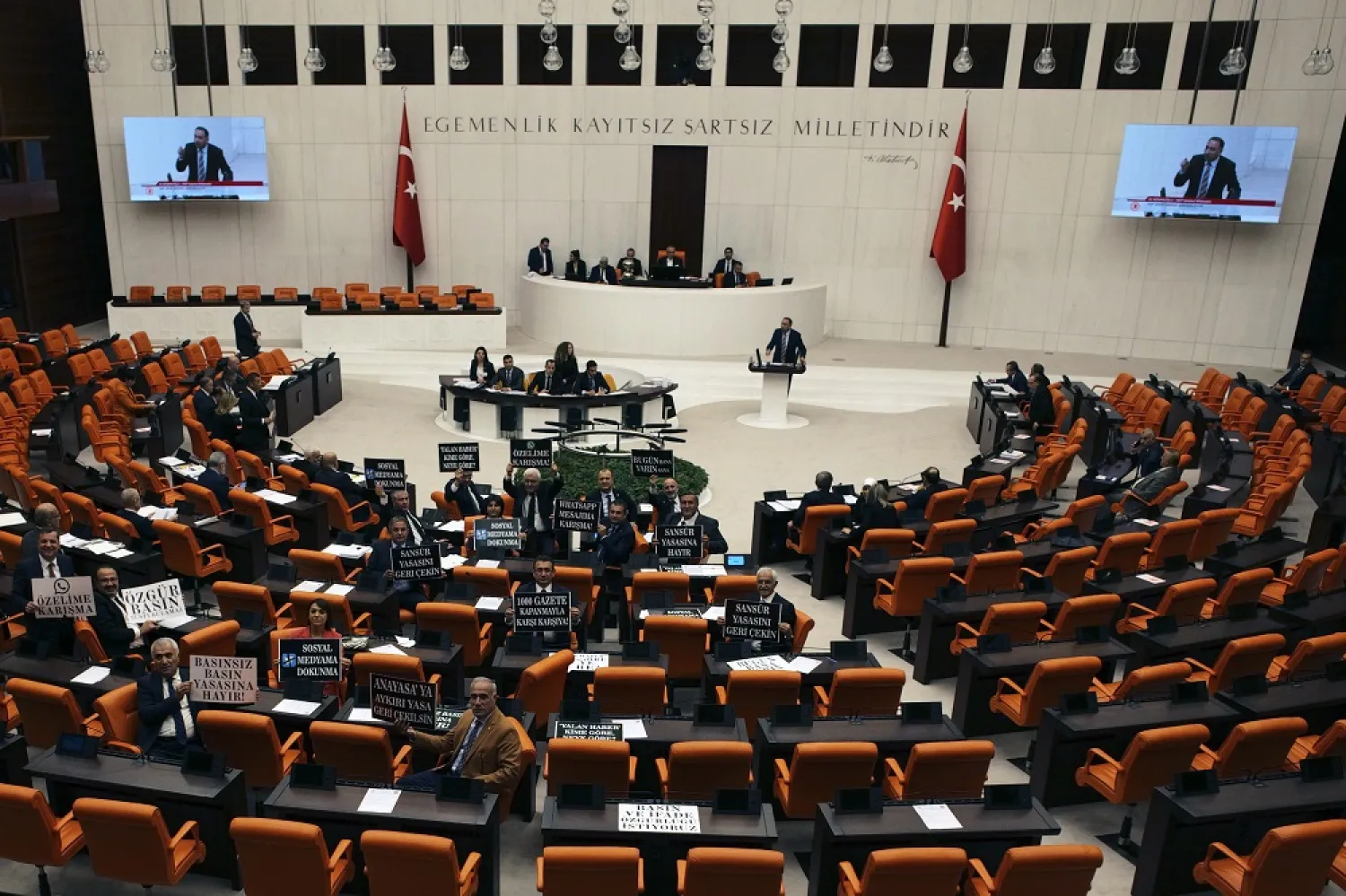Türkiye’s main opposition group said on Friday it would ask the top court to throw out new media legislation that would jail people for spreading "misinformation", calling the measures unprecedented censorship.
Parliament adopted the law late on Thursday after it was proposed by President Tayyip Erdogan's ruling AK Party (AKP), which says it aims to regulate online publications, protect the country and combat disinformation.
The bill had drawn criticism from Türkiye’s Western allies and rights groups who said its vague reference to "false or misleading information" can be interpreted differently by courts to punish those critical of the government.
The law's Article 29 says those who spread false information about Türkiye’s security to "create fear and disturb public order" will face a prison sentence of one to three years. The bill still needs to be approved by the president.
"We are talking about a law that is the most oppressive in our history and the law that contains the most censorship," Burak Erbay, a member of the opposition Republican People's Party (CHP), said.
He said the party would file an application to the Constitutional Court as soon as the "Law on Amending the Press Law" was published in the Official Gazette.
"We believe the biggest censorship law in history will be reversed by the Constitutional Court and this law will be annulled. It is a regulation that takes us down to the level of underdeveloped societies," Erbay told Reuters.
The AKP's nationalist allies MHP joined it in voting to approve the bill, while opposition parties opposed it.
The AKP has dismissed the criticism and says it opposes censorship, adding the law aims to protect everyone from false accusations on social media.
The pro-government Sabah newspaper said a "safe era" in social media had begun. It said the regulations would improve national safety by allowing the immediate removal of content that would endanger public peace.
Tight election
Hundreds of journalists have been jailed in a crackdown following a 2016 coup attempt, mainly on terrorism charges. Ankara has defended the measures as a necessary response to the scale of the security threat facing Türkiye.
People have also been tried over social media posts including ones that criticize Türkiye’s incursions in Syria or are seen as insulting the president, considered a crime in Türkiye.
Ozgur Ogret, Türkiye representative for the Committee to Protect Journalists, said the new law poses a danger not only for journalists but all citizens and could increase self-censorship ahead of elections set for next year.
"This law will hinder the free flow of information in the election atmosphere," he said after a press freedom event organized by the International Press Institute in Istanbul.
"Freedom of expression is always important but in an election atmosphere, it is really crucial for everybody to speak their minds and voters to decide on solid information".
Election polls show Erdogan could lose to an opposition candidate if a presidential election were held today - and that the opposition bloc would win a majority in parliament.
Arda Guzel, a student in Ankara, said the new law aimed to stifle dissenting voices on social media and prevent the opposition from garnering more votes.
"Because people nowadays look at social media more than mainstream media, they can access negative news about the government faster," he said.
"They passed this law to counter these news stories."









